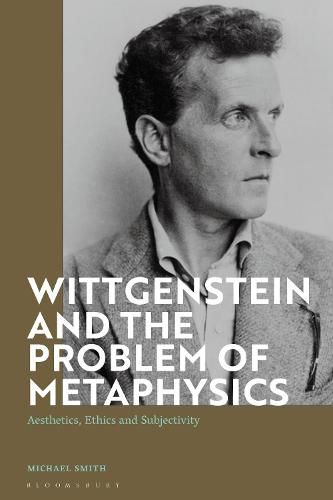Readings Newsletter
Become a Readings Member to make your shopping experience even easier.
Sign in or sign up for free!
You’re not far away from qualifying for FREE standard shipping within Australia
You’ve qualified for FREE standard shipping within Australia
The cart is loading…






Exploring the rupture between Wittgenstein’s early and late phases, Michael Smith provides an original re-assessment of the metaphysical consistencies that exist throughout his divergent texts. Smith shows how Wittgenstein’s criticism of metaphysics typically invoked the very thing he was seeking to erase. Taking an alternative approach to the inherent contradiction in his work, the ‘problem of metaphysics’, as Smith terms it, becomes the organizing principle of Wittgenstein’s thought rather than something to overcome.
This metaphysical thread enables further reflection on the poetic nature of Wittgenstein’s philosophy as well as his preoccupation with ethics and aesthetics as important factors mostly absent from the secondary literature. The turn to aesthetics is crucial to a re-assessment of Wittgenstein’s legacy, and is done in conjunction with an innovative analysis of Nietzsche’s critique of Kantian aesthetics and Kant’s ‘judgments of taste’. The result is a unique discussion of the limits and possibilities of metaphysics, aesthetics, ethics and the task of the philosopher more generally.
$9.00 standard shipping within Australia
FREE standard shipping within Australia for orders over $100.00
Express & International shipping calculated at checkout
Exploring the rupture between Wittgenstein’s early and late phases, Michael Smith provides an original re-assessment of the metaphysical consistencies that exist throughout his divergent texts. Smith shows how Wittgenstein’s criticism of metaphysics typically invoked the very thing he was seeking to erase. Taking an alternative approach to the inherent contradiction in his work, the ‘problem of metaphysics’, as Smith terms it, becomes the organizing principle of Wittgenstein’s thought rather than something to overcome.
This metaphysical thread enables further reflection on the poetic nature of Wittgenstein’s philosophy as well as his preoccupation with ethics and aesthetics as important factors mostly absent from the secondary literature. The turn to aesthetics is crucial to a re-assessment of Wittgenstein’s legacy, and is done in conjunction with an innovative analysis of Nietzsche’s critique of Kantian aesthetics and Kant’s ‘judgments of taste’. The result is a unique discussion of the limits and possibilities of metaphysics, aesthetics, ethics and the task of the philosopher more generally.